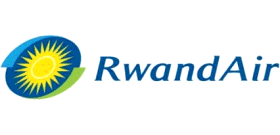 RwandAir Updates Fleet: CRJ900s Retired, Ex-Qatar A330-200 to Boost Long-Haul and Lagos Service
RwandAir Updates Fleet: CRJ900s Retired, Ex-Qatar A330-200 to Boost Long-Haul and Lagos Service
RwandAir has taken significant steps in modernizing its fleet and enhancing its route strategy, marking the end of an era for its CRJ900 regional jets while preparing for the arrival of a much-anticipated Airbus A330-200. The airline’s two CRJ900s, integral to its regional operations for years, were retired quietly, with their last flights recorded in October 2024 and July 2025 respectively. This move underscores RwandAir’s commitment to aligning its fleet with both operational efficiency and evolving market demands.
To reinforce its regional footprint, RwandAir has introduced two newly delivered Boeing 737-800 aircraft. These additions provide increased capacity, flexibility, and reliability across short- and medium-haul African routes—supporting key business and leisure corridors that are vital to the continent’s intra-regional connectivity. The Boeing 737-800s are already being deployed across high-demand city pairs, ensuring that the exit of the CRJ900s does not diminish RwandAir’s competitive regional presence.
The most transformative development for RwandAir, however, is the impending arrival of an ex-Qatar Airways Airbus A330-200, most recently operated by Oman Air. Slated to join the fleet by the end of 2025, this widebody aircraft is configured with a two-class layout: 30 Business Class and 190 Economy Class seats. Its introduction will significantly expand the airline’s long-haul capabilities and elevate the passenger experience on intercontinental services.
Strategic plans indicate that the A330-200 will be instrumental on the high-profile Kigali–London route, enabling RwandAir to offer a more competitive product in terms of comfort and capacity. The upgrade from smaller aircraft to a modern, spacious widebody is likely to attract both business and leisure travelers, as well as facilitate smoother connections for passengers transiting through Kigali from across Africa.
Moreover, the new A330-200 will support RwandAir’s ambitions in West Africa, with the airline planning to increase frequencies to Lagos. This move capitalizes on the robust demand between East and West African markets, further strengthening Kigali’s role as a regional hub. Enhanced Lagos service not only meets the needs of Nigeria’s growing travel sector but also opens opportunities for trade, tourism, and business partnerships between the two regions.
For Africa’s travel sector, these fleet changes at RwandAir reflect larger trends shaping the continent’s aviation landscape: airlines are seeking greater efficiency, passenger comfort, and route flexibility through targeted fleet renewal. The retirement of older, less-efficient regional jets in favor of next-generation narrowbodies and widebodies signals a focus on sustainable growth and the ability to respond dynamically to market shifts.
The arrival of the ex-Qatar A330-200 also positions RwandAir to capture a share of the premium and long-haul market, with the aircraft’s advanced cabin product and increased range supporting expansion into new intercontinental destinations in the future. As RwandAir continues to invest in both its fleet and route network, travel professionals across Africa will find new opportunities to offer clients improved connectivity, enhanced comfort, and access to some of the continent’s most strategic travel corridors.
Looking ahead, the airline’s fleet renewal and network adjustments are expected to further solidify Kigali’s status as a key African aviation gateway. As passenger and cargo demand rebounds post-pandemic, RwandAir’s agile approach to fleet management and route development sets a benchmark for other regional carriers seeking to thrive in a competitive and rapidly evolving marketplace.
